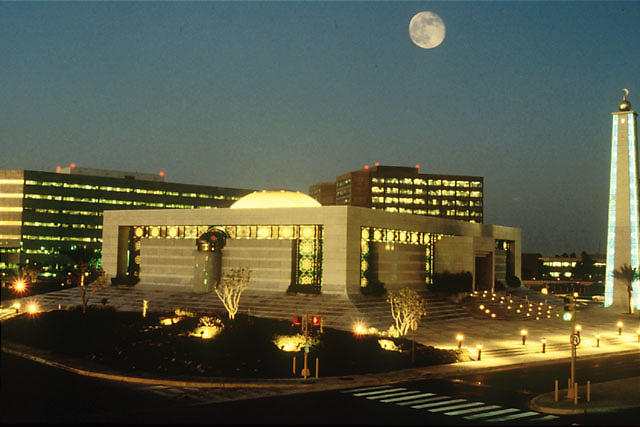by Alexander Geysman, Irina Mironova, Sophie Nguebana, Glenda Pavon, Alberto Perego, Bogdan Polishchuk, Daniel Tsvetanov
Secret Reserves? China increases strategic reserve during price glut
Geospatial analytics startup company Orbital Insight Inc. based in Palo Alto, California, announced that China may have more oil reserves than it has declared. Information is based on satellite images of 2,100 strategic and commercial petroleum reserve tanks capable of storing 900 million bbl, according to calculations derived from photos tracking the depth of shadows visible on top of the floating lids of the giant tanks. Orbital Insight emphasize that there may be more underground storage tanks. According to the Palo Alto data, estimated oil reserves in China amount to 600 million bbl in May 2016, while the Chinese official news agency Xinhua reported the presence of only 278 million bbl, which covers 36 days of oil imports. The real oil reserves in China can influence the situation on the oil market. The fact that China’s reserves are greater than expected, means that oil demand growth in recent years hasn’t been due to increased consumption, but strategic planning. It is uncertain whether China will continue to fill its tanks, supporting the oil demand, because there is no official data on the case. China outlined in 2009 its plans to build emergency reserves equivalent to 100 days of net imports by 2020. If the information presented by Orbital Insight is credible, then China could be closer to its goal than anyone thought.
Steven Mufson, 2106. China may be stockpiling more oil than anyone realized. The Washington Post. 29 September, 2016. https://www.washingtonpost.com/business/economy/china-may-be-stockpiling-more-oil-than-anyone-realized/2016/09/29/69492224-85e4-11e6-a3ef-f35afb41797f_story.html
Fewer Actors: Rosneft purchases state share of Bashneft
According to Russia’s government directive, Rosneft is going to purchase the state’s 50.08% interest in Bashneft for up to US$ 5.3bln by October 15. This decision will increase the Rosneft monopoly over the oil industry in Russia. Indeed, Rosneft and Bashneft combined will control 42% of the country’s oil output. Vladimir Putin said it was probably “not the best option” for Bashneft. James Henderson, a Russia specialist at the Oxford Institute for Energy studies, argues that this growing monopoly in Russia’s oil production might not be positive for the “efficiency and optimal development of the oil sector.”
Jack Farchy, 2016. Moscow clears oil giant Rosneft’s move to buy Bashneft. Culmination of battle among Russian elites cements Sechin’s hold on oil sector. Financial Times. 6 October, 2016. https://www.ft.com/content/4b1b4a90-8bdc-11e6-8aa5-f79f5696c731
Shale Revolution: Can it spread to UK?
Cuadrilla Resources, an independent shale company, has begun development of shale gas reserves of Lancashire area in the UK. The company has been exploring for natural gas in Lancashire for almost four years. It’s their belief that there are at least 200 trillion cubic feet of natural gas trapped in the shale rock in the area examined. Safely and sensibly unlocking Lancashire’s energy could bring new economic growth to the Blackpool area, which has been underperforming in the last decades of post-industrial economy. The Tory Community Secretary Sajid Javid supported the company attempts at extraction and development by stating that this enterprise is an opportunity worth 64,000 new jobs, and that it could provide a cheaper, independent energy source to many households in the area in the years to come. Nevertheless, Caudrilla’s activities have met strong opposition from local communities, which are afraid of the environmental externalities of these fields. The Preston New Road Action Group, a local anti-fracking group, is concerned by the risk of polluting the ground with undisclosed and unknown chemicals, and they believe that it doesn’t make sense to dig up more fossil fuels. In particular they state that the UK has just signed the Paris international agreement, which is coming into force next month, and it would make little economic or environmental sense to dig out fossil fuels when their consumption should instead be reduced. Despite the opposition, Lancashire’s council objection to a fracking site was rejected on October 6, 2016. This is an important step forward for possible development of shale resources in the UK.
Adam Vaughan, 2016. Fracking given UK go-ahead as Lancashire council rejection overturned. The Guardian. 6 October, 2016. https://www.theguardian.com/environment/2016/oct/06/uk-fracking-given-go-ahead-as-lancashire-council-rejection-is-overturned
Output Limit Exception: Nigeria struggles with internal strife
OPEC recently gave Nigeria a pass on output cuts amid a supposed ceasefire between the Niger Delta Avengers (NDA) and oil producers in the region, but other militant groups are stepping in for the NDA. Tensions and violence are high, particularly at the Forcados export pipeline, which was operated by Shell and forced to shut down in February due to attacks. The pipeline is set to resume production and companies are purchasing large amounts of the Forcados export crude, which may mean local militant groups are now eyeing the pipeline, which was one of the NDA’s first attacks. Recent bombings of state run pipelines have been conducted by a group known as the Niger Delta Greenland Justice Mandate. The group has stated it will continue attacks despite the ceasefire and is specifically targeting state run facilities. Shell previously operated in the area but sold off its assets in Greenland. Shell has in fact sold most of its onshore oil production in the area due to violence. Militant groups are demanding things like more control over the areas resources and are deeply distrustful of Nigeria’s government.
Julianne Geiger, 2016. Nigerian Oil Anxieties Mount, Even with OPEC Exemption. Oilprice.com. 6 October, 2016.
http://oilprice.com/Energy/Crude-Oil/Nigerian-Oil-Anxieties-Mount-Even-With-OPEC-Exemption.html
Legislation Rewrite? New deal would fly against current Russian law
Royal Dutch Shell and Gazprom are in process of negotiating each company’s role in the planned Baltiisky LNG terminal. Rumors are, Gazprom will let Shell export LNG from the terminal by their own means, if this LNG is planned for the markets where no conflict of interest with Gazprom may take place. The US $11.5 bln plant is planned to be commissioned by 2021. Until then, the two giants have plenty of time to make an agreement. Most probably Shell will have 35% share to Gazprom’s 51%. Shell’s involvement also brings much needed technical expertise. One interesting detail is that currently Russian law only allows natural gas to be exported by certain companies, none of them foreign, meaning existing legislation must be changed in order for the deal to be implemented. Doubtfully, it will be a problem for Gazprom, but in any case, while Russia is under sanctions, prospects of this partnership are still unclear.
Yuri Barsukov, 2016. Сжиженное непосильным трудом (Uneasily Liquified). Kommersant. 7 October, 2016. http://www.kommersant.ru/doc/3108692
Libyan Exports: First tanker of the year headed for China
Khalifa Haftar, who has been an active participant in Libyan politics for decades, returned from his exile in 2011 as the uprising against Gaddafi gathered momentum. According to Newsweek, “Haftar had been appointed as commander of the LNA by the House of Representatives (HoR), an internationally-recognized successor to the GNC based in the eastern city of Tobruk”. The big question was what would Haftar do about oil production and oil export facilities that fell under his control. It appears that shift will be towards Asian markets as on October 6th a tanker bearing 800,000 bbl departed for China. According to the article at Oilprice.com, “Libyan oil production has increased since the Haftar conquered the terminals. Before the North African country’s civil war began in 2011, the OPEC member produced 1.6 million barrels per day.” Haftar is working to get oil production back up, even if stability remains an even rarer and more valuable resource in Libya.
Conor Gaffey, 2016. Who Is Khalifa Haftar, Libya’s Divisive General? Newsweek. 22 July, 2016. http://europe.newsweek.com/khalifa-haftar-isis-libya-muammar-el-qaddafi-483246?rm=eu
Zainab Calcuttawala, 2016. Libya Reopens Second Oil Terminal Under Haftar Leadership. Oilprice.com. 6 October, 2016. http://oilprice.com/Latest-Energy-News/World-News/Libya-Reopens-Second-Oil-Terminal-Under-Haftar-Leadership.html
World Energy Congress: Putin shares concerns and vision of future
The World Energy Congress is the World Energy Council’s flagship event. The 23rd Congress took place in Istanbul on October 9-13, 2016. On October 10, the Presidential session took place, with speeches by presidents of (in the order of appearance) Northern Cyprus, Venezuela, Azerbaijan, Russia, and Turkey. The main theses that were put forward by Vladimir Putin (as reported by Tatiana Mitrova of ERIRAS) included the following: Russia is very concerned with the problem of energy poverty in the world, Russia respects and loves renewable energy, but still sees hydrocarbons as the basis of energy system (quoting extensively the figures from the IEA). The mess with oil prices is the consequence of overinvestment. The market has to be assisted to reach the balance by means of freezing / cutting output, which Russia has put forward and where Russia expects a decision to be made in November. Negotiations concerning the Turkish Stream were and are being conducted (this means that nothing is signed yet). And of course, Russia understands that Turkey is probably not the best place to hold the Congress, but is still happy for the victory of democracy and the Turkish nation over the reactionaries, who had attempted a coup.
Tatiana Mitrova, 2016. Short report from World Energy Congress (in Russian). Российский нефтегаз. 10 October, 2016. https://www.facebook.com/groups/437496816287290/permalink/1138802649490033/
Karel Beckman, 2016. Visions clash at World Energy Congress in Istanbul. Energy Post. October 14, 2016. http://energypost.eu/visions-clash-world-energy-congress-istanbul/

